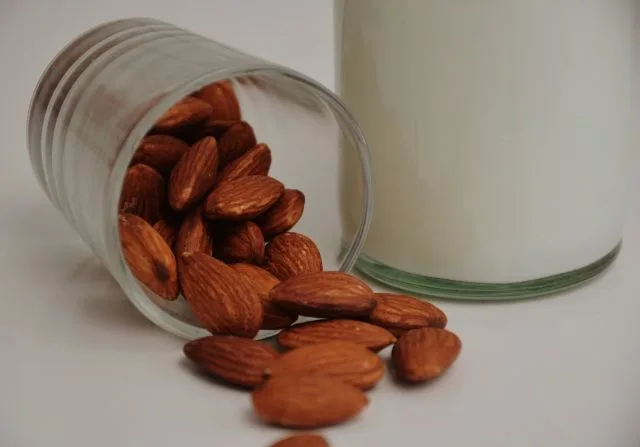Nearly two-thirds of adults in the United States have consumed plant-based milk. With the global plant-based milk market expected to be worth over $50 billion by 2030, plant-based milk products could be replacing traditional cow’s milk as the milk of choice.
Yet, when it comes to nutritional value, how do these milk alternatives compare with cow’s milk?
Plant-Based Milk vs. Dairy Milk: Which Has More Nutrients?
Dr. Abigail Johnson is an assistant professor and associate director of the University of Minnesota School of Public Health Nutrition Coordinating Center. In a recent study presented at NUTRITION 2023 — the annual meeting of the American Society for Nutrition – Dr. Johnson and her team decided to investigate the nutritional value of alternative milk and how it stacks up against cow’s milk,
“We know from our dietary assessments for nutrition studies that consumers are choosing more plant-based milk alternatives,” Dr. Johnson said.
“This project aimed to increase the number of these milk alternatives available in the Nutrition Coordinating Center’s database of foods.”
Dr. Johnson and her team examined the ingredient information of 237 plant-based milk alternatives from 23 manufacturers. Luckily for them, the University of Minnesota’s Nutrition Coordinating Center had this information on deck. This is because it maintains a database of roughly 19,000 foods for assessing dietary intake in human research.
The team then compared the nutritional value on the product labels to cow’s milk and alternative milk in different categories.
Does Plant-Based Milk Lack Nutrients?
According to the team’s findings, only 28 of the 237 plant-based milk products had as much or more protein, vitamin D, and calcium as cow’s milk. Additionally, around 69% of the milk alternatives were fortified with calcium and vitamin D at a level equal to cow’s milk.
That said, there were variations in fortification levels identified. 76% of oat-based, 69% of soy-based, and 66% of almond-based milk alternatives were fortified with both vitamin D and calcium.
Additionally, 16% of the plant-based milks contained protein at levels equal to or greater than cow’s milk. The study also noted soy and pea-based milk drinks as being more likely to have higher protein levels.
As with sugar, about a third of the plant-based milk products had sugar or added sugar in quantities. Johnson added that the levels of sugar were more similar to a flavored milk like strawberry or chocolate milk.
Overall, the team does maintain fortified milk alternatives can contain enough calcium and vitamin D, yet only a few of these products will have the same protein levels as dairy milk.
“The key takeaway is if you’re consuming these because of a specific nutrient, you need to be reading the label because the products are so different from each other,” says Johnson.
Which Milk Is Best For You?
“Our results provide evidence that many plant-based milk alternatives are not nutritionally equivalent to cow’s milk.” – Dr Abigail Johnson.
If you’re a fan of plant-based milk, Dr. Johnson advises that you opt for products that list calcium and vitamin D as ingredients. She also suggests that you consider adding other sources of calcium and vitamin D to your diet.
“Our findings point to a need to ensure that consumers are aware that many plant-based milk alternative products in the marketplace today are not nutritionally equivalent to cow’s milk,” says Dr. Johnson.
Dr. Johnson adds that product labelling requirements and dietary guidance can help alert and educate consumers.
It appears that the U.S. Food and Drug Administration (FDA) had the same idea. Earlier this year, the regulatory body released draft guidance on how plant-based milk alternatives should be properly labelled.
Is the Future of Milk Plant-Based?
Yes, the study does highlight the potential nutritional deficiencies posed by plant-based milk products. Yet, that doesn’t mean that they aren’t beneficial.
Not only are these milk alternatives typically lower in calories, but they’re also much kinder to the environment,
“For those concerned about climate change, milk alternatives are a better option, and in the long run, we can’t have human health without planetary health,” said Dr. Walter Willett, a leading nutrition researcher and a professor of epidemiology and nutrition at Harvard T.H. Chan School of Public Health in Boston.
Plant-based milks can be a healthy and sustainable alternative to cow’s milk, but they may not always be the best replacement. In this case, it is important to always read the label and, if necessary, adjust your dietary habits so that you can meet your nutritional needs.
Want to know more?
Commercial honeybees are facing a serious crisis, and many have stated that the real culprit behind the honeybee crisis is the world’s obsession with almond milk.



![women [longevity live]](https://longevitylive.com/wp-content/uploads/2020/01/photo-of-women-walking-down-the-street-1116984-100x100.jpg)










